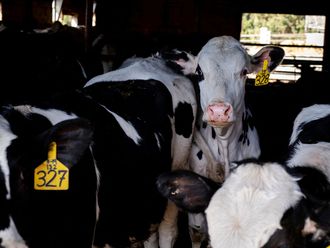Washington: For more than two years, President Donald Trump has repeatedly attacked the Russia investigation, portraying it as a hoax and illegal even months after the special counsel closed it. Now, Trump’s own Justice Department has opened a criminal investigation into how it all began.
Justice Department officials have shifted an administrative review of the Russia investigation closely overseen by Attorney General William Barr to a criminal inquiry, according to two people familiar with the matter. The move gives the prosecutor running it, John Durham, the power to subpoena for witness testimony and documents, to impanel a grand jury and to file criminal charges.
The opening of a criminal investigation is likely to raise alarms that Trump is using the Justice Department to go after his perceived enemies. Trump fired James Comey, the FBI director under whose watch agents opened the Russia inquiry, and has long assailed other top former law enforcement and intelligence officials as partisans who sought to block his election.
Trump has made clear that he sees the typically independent Justice Department as a tool to be wielded against his political enemies. That view factors into the impeachment investigation against him, as does his long obsession with the origins of the Russia inquiry. House Democrats are examining in part whether his pressure on Ukraine to open investigations into theories about the 2016 election constituted an abuse of power.
The move also creates an unusual situation in which the Justice Department is conducting a criminal investigation into itself.
Barr’s reliance on Durham, a widely respected and veteran prosecutor who has investigated CIA torture and broken up mafia rings, could help insulate the attorney general from accusations that he is doing the president’s bidding and putting politics above justice.
It was not clear what potential crime Durham is investigating, nor when the criminal investigation was prompted. A Justice Department spokeswoman declined to comment.
Federal investigators need only a “reasonable indication” that a crime has been committed to open an investigation, a much lower standard than the probable cause required to obtain search warrants. However, “there must be an objective, factual basis for initiating the investigation; a mere hunch is insufficient,” according to Justice Department guidelines.
When Barr appointed Durham, the US attorney in Connecticut, to lead the review, he had only the power to voluntarily question people and examine government files.
Russia probe scepticism
Barr expressed scepticism of the Russia investigation even before joining the Trump administration. Weeks after being was sworn in this year, he said he intended to scrutinise how it started and used the term “spying” to describe investigators’ surveillance of Trump campaign advisers. But he has been careful to say he wants to determine whether investigators acted lawfully.
“The question is whether it was adequately predicated,” Barr told lawmakers in April. “And I’m not suggesting that it wasn’t adequately predicated. But I need to explore that.”
Barr began the administrative review of the Russia investigation in May, saying that he had conversations with intelligence and law enforcement officials that led him to believe that the FBI acted improperly, if not unlawfully.
The FBI opened the investigation in late July 2016, code-named Crossfire Hurricane, after receiving information from the Australian government that a Trump campaign adviser had been approached with an offer of stolen emails that could damage Hillary Clinton’s campaign.
FBI agents discovered the offer shortly after stolen Democratic emails were released, and the events, along with ties between other Trump advisers and Russia, set off fears that the Trump campaign was conspiring with Russia’s interference.
The FBI did not use information from the CIA in opening the Russia investigation, former US officials said. But agents’ views on Russia’s election interference operation crystallised by mid-August, after the CIA director at the time, John Brennan, shared intelligence with Comey about it.
The CIA did contribute heavily to the intelligence community’s assessment in early 2017 that Russia interfered in the 2016 election and tried to tip it in Trump’s favour, and law enforcement officials later used those findings to bolster their application for a wiretap on a Trump campaign adviser, Carter Page.
The special counsel who took over the Russia investigation in 2017, Robert Mueller, secured convictions or guilty pleas from a handful of Trump associates and indictments of more than two dozen Russians on charges related to their wide-ranging interference scheme.
‘Insufficient evidence’
In his report, Mueller said that he had “insufficient evidence” to determine whether Trump or his aides engaged in a criminal conspiracy with the Russians but that the campaign welcomed the sabotage and expected to benefit from it.
Barr is closely managing the Durham investigation, even travelling to Italy to seek help from officials there to run down an unfounded conspiracy that is at the heart of conservatives’ attacks on the Russia investigation — that the Italian government helped set up the Trump campaign adviser who was told in 2016 that the Russians had damaging information that could hurt Clinton’s campaign.
But Italy’s intelligence services told Barr that they played no such role in the events leading to the Russia investigation, Prime Minister Giuseppe Conte of Italy said in a news conference Wednesday. Barr has also contacted government officials in Britain and Australia about their roles in the early stages of the Russia investigation.
In interviewing more than two dozen former and current FBI and intelligence officials, Durham’s investigators have asked about any anti-Trump bias among officials who worked on the Russia investigation and about one aspect of the investigation that was at the heart of highly contentious allegations that they abused their powers: the secret application seeking a court order for a wiretap on Page.
Law enforcement officials suspected Page was the target of recruitment by the Russian government, which he has denied.












